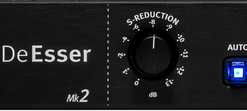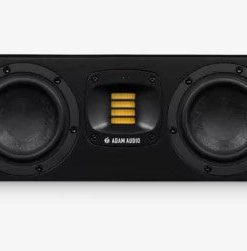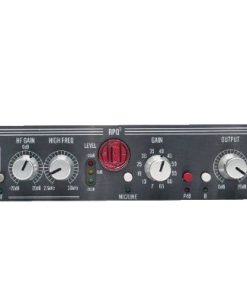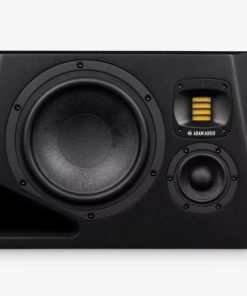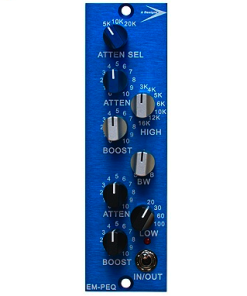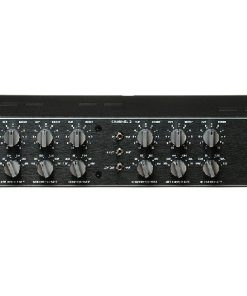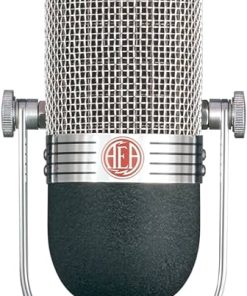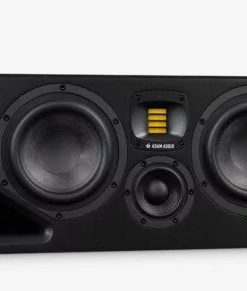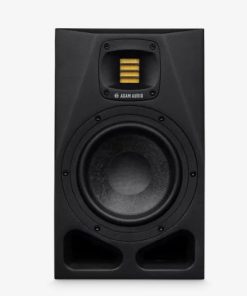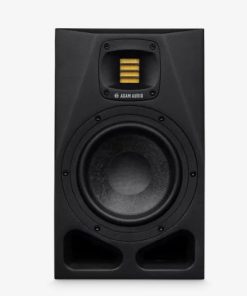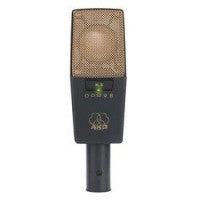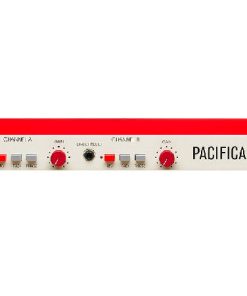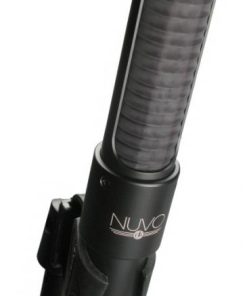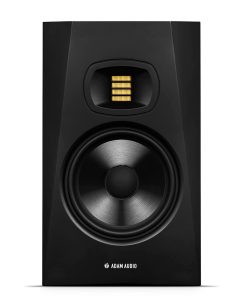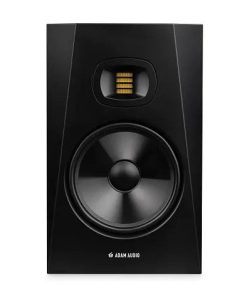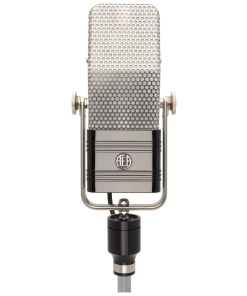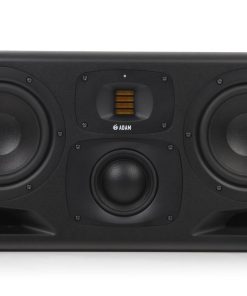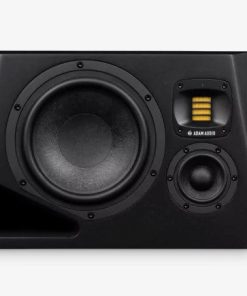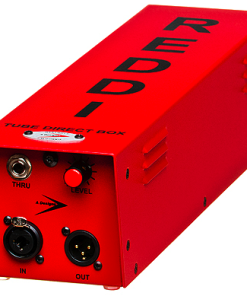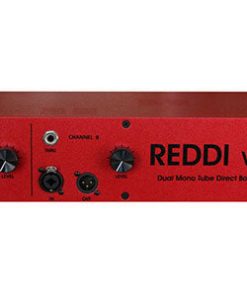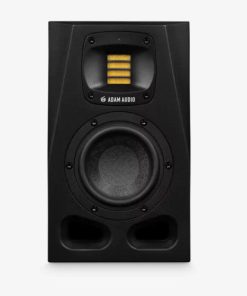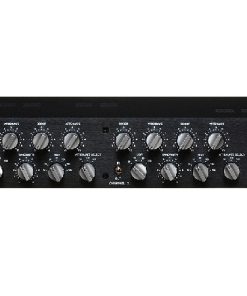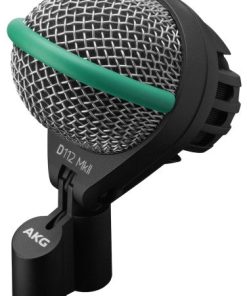SPL DeEsser Mk2 SPL
$ 799,00 $ 239,70
The SPL DeEsser is unique – and has been since 1996. The Auto Dynamic DeEsser removes undesired sibilant frequencies in a simple and musical way, cancelling out S-sounds without affecting the natural character or timbre of the voice.
The newest generation of the DeEsser Mk2 features the same processing qualities as its predecessor, but comes in a new design and has an even better feel due to the solid aluminum knobs. The DeEsser Mk2 offers two mono DeEssers in one 19″ device.
Auto-Dynamic DeEsser
SPL DeEsser – the revolution of S-sound reduction.
The DeEsser uses a unique technology to reduce sibiliance in a mix or on vocal tracks.
It automatically detects and hones in on the sibilant frequencies leaving neighboring
frequencies unaffected. These S‑sounds are mixed back into the main signal phase-inverted to cancel out the sibilance. The result is a sound-neutral, inconspicuous and extremely effective process.
Even at high S‑Reduction values the de-essing has an egligible effect on the character and timbre of the voice.
S-Reduction
The S‑Reduction control adjusts the intensity of the S‑sound reduction.
In practice, S‑Reduction settings between -2 dB and -8 dB achieve the best results for most applications.
LED-display
The S-Reduction LED display visualizes the intensity of the S‑sound reduction between 0 dB and -20 dB in 2 dB steps.
Auto
The Auto switch activates the Auto Dynamic function. This automatically adjusts the threshold if the input level fluctuates due to varying distance to the microphone which leads to fluctuating input levels.
With Auto-Threshold engaged, the de-essing intensity remains constant at the value you set with the S‑Reduction control. This is a great help not only for inexperienced voice-over artists, but also in live situations.
Female
The Female switch is used to adapt to the voice characteristics:
When the switch is pressed, the Female mode is selected. The automatic S‑sound detection now reacts more intensively to higher-frequency S‑sounds. The unpressed switch position selects the Male mode to adapt the S‑sound detection to male voice characteristics. Lower-frequency S‑sounds are processed.
In addition, the mid frequency of the S‑sound detection is increased from Male mode to Female mode. For male voices the mid frequency is at about 6 kHz, for female voices at just under 7 kHz.
Nevertheless, you should not necessarily choose the Male position for male voices and the Female position for females. Always listen to the pitch and tone of the S‑sound and try both positions.
On
The On switch, activates or deactivates the respective channel. This allows you to quickly switch between processed and unprocessed signal.
To minimize switching noises, switching is performed directly after
the balanced inputs and outputs. This relay hard bypass circuitry also provides immediate redirection of inputs to outputs in the event of a power fault on the primary or secondary side of the power supply, or if the device is powered off.
How does a traditional DeEsser work?
Traditional DeEssers work with compressors; they can therefore also be found in combination devices with compressors/limiters. In addition to the threshold control, which determines the level at which de-essing starts, you will also find a frequency control, which determines the center frequency at which S‑sounds are to be searched for. The bandwidth of the processing is usually up to two octaves. When an S‑sound appears, the entire bandwidth is always compressed, which leads to undesirable side effects such as twanging or lisping.
How does the SPL Auto Dynamic DeEsser work?
Further advantages of the Auto-Dynamic function
DeEssers with conventional compressor technology work more intensively with a decreasing distance to the microphone. On the other hand, the DeEssing becomes weaker with an increasing distance to the microphone. A compressor/limiter is usually used after the DeEsser to compensate level fluctuations. However, due to the different de-essing the compressor/limiter reacts wrong.
When the distance to the microphone is increased, the compressor/limiter reacts to the S-sounds that reappear. Not only the de-essing changes the sound, but also the compressor/limiter negatively influences the sound image by its readjustment.
Thanks to the Auto-Dynamic function of the DeEsser Mk2, these problems are eliminated.
A control circuit monitors the input level and automatically adjusts the threshold. A following compressor/limiter reacts accordingly more accurately and with less coloration.
Inputs and outputs
The two channels of the De-Esser are equipped with Neutrik XLR sockets with gold-plated contacts. The signal transmission is electronically balanced at a nominal level of +6 dB.
Looks great, feels great – and lasts for a lifetime
The DeEsser Mk2 has a 4 mm thick, black anodized aluminum front panel and aluminum knobs milled from solid. The housing is made of high-quality steel and is powder-coated in elegant black.
Prompt Delivery and Professional Packaging
Our long-standing partnership with UPS FedEx DHL and other global carriers lets us offer a range of shipping services. Our warehouse staff is extremely skilled and will package your items according to our precise and exact specifications. Your goods will undergo an extensive inspection and be safely packaged prior to being sent out. Each day, we ship to thousands of customers in many countries. The fact that we are committed to becoming the biggest online retailer in the World is clear. These warehouses are in Europe in the same way as they are in USA.
Note: Orders that include more than one item are assigned a processing period depending on the item.
Before shipping, we will inspect thoroughly the items you have ordered. Most orders are shipped within 48 hours. Expected delivery time is between 3-7 days.
Returns
Stock is dynamic. It's not entirely managed by us since we are involved with multiple entities, including the factory and the storage. The actual stock can change at any moment. It is possible that your order may be out of stock once the order has been placed.
Our policy lasts for 30 days. We cannot exchange or refund your order if it has been 30 days from the date of purchase.
For your item to be returned it must be in its original packaging, unopened and in the condition you received it. The item must be in its original packaging.
Related products
Mic Preamp
500 Series
Monitor Systems
Recording Equipments
Microphones
Equalizers
Accessories
Microphones
Monitor
Recording Equipments
Recording Equipments
Headphones
Microphones
Microphones
Monitor Systems
Monitor
Accessories
Headphones
Monitor
Accessories
Equalizers
Recording Equipments
Microphones
500 Series



